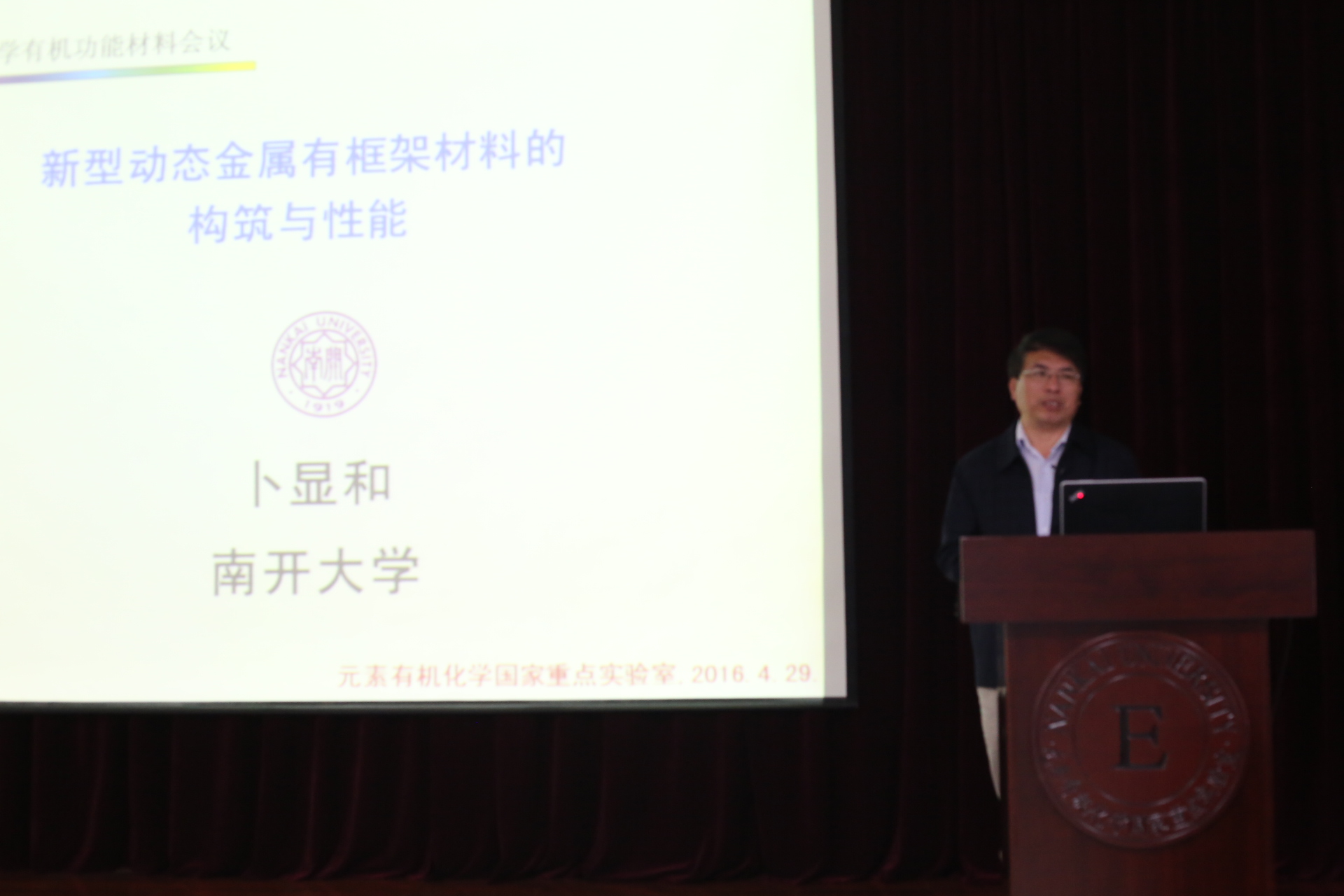To boost the diverse research
development of the State Key Laboratory of Elemento-organic Chemistry (SKLEOC),
the institute newly set up the organic functional materials discipline this
year. Four professors Xianhe Bu, Jun Chen, Yongsheng Chen, and Peng Cheng were
invited to join SKLEOC as pioneering researchers in this new field. The launch ceremony
for the new discipline was convened in the Academic Lecture Hall of the
Synthesis Building of SKLEOC on April 29th, 2016. The ceremony was hosted by Prof.
Chunming Cui, director of the SKLEOC.
On behalf of SKLEOC, Prof. Chunming Cui first extended his warm welcome
to the four professors for their participation in the discipline. Prof. Cui
noted that with constant development of organic chemistry and collision between
organic chemistry with other fields chemistry, the study of organic functional materials
has become an important branch in oganic chemistry. This ceremony marked that organic
functional material chemistry has officially become an important research field
of the SKLEOC. This new addition would help SKLEOC strengthen its research
diversity, cultivate interdisciplinary talents, and improve its international
influences. After Prof. Cui’s speech, the four professors respectively made
academic reports on their science, and shared with faculties and students of the
SKLEOC their latest research achievements in the field of organic functional materials.

In his report titled “construction and performance of new dynamic organic
framework materials”, Prof. Xianhe Bu introduced his research group’s research
progress in the field of metal-organic framework (MOF) materials, including achievements
in connection with the “door” effect, the application, construction of
crystalline capsules, and the first mixing block three-layer MOF and dynamic
MOFs.
Prof. Jun Chen gave a talk entitled “research of inorganic-organic composite
electrode materials”. He first put forward key scientific issues in the research
of inorganic/organic composite electrode materials. He then introduced in
clear-cut words his research group’s solutions for the low conductivity and
high solubility of carbonyl compounds and a series of results arising from
scientific molecular design and experimental studies.
Prof. Yongsheng Chen then delivered his lecture named “Oligomer-like
Small Molecules and Their Solar Cells”. He introduced his research group’s
strategies for the design of electron donors and small molecules, and expounded
his research group’s series of achievements in organic photovoltaic materials
and studies of devices.
Last but not least, Prof. Peng Cheng demonstrated his research group’s
up-to-the-minute research achievements in the field of function-oriented
organic-inorganic hybrid materials from four aspects, namely, “magnetic
metal-organic frameworks and guest molecule control”, “hybrid rare-earth MOF
and its fluorescent probe”, “[MI] 8
cluster-based MOF and stereo aromaticity”, “organic-inorganic nanocomposite
materials assemblies and applications”.
The four professors’ in-depth studies and rich report contents aroused
much interest from faculties and students of SKLEOC. Each report ignited
extensive interaction between the speechmaker and listeners. Faculties and
students of SKLEOC exchanged ideas and discussed enthusiastically with the four
speakers in terms of new ideas, research strategies, and frontier scientific
issues.
Over the next several years, the SKLEOC will define the organic functional
materials as a key research field, and we hope to cultivate a strong research
team step by step. SKLEOC sincerely invites young scientists in this field to
join our institute; we also welcome students who aspire to engage in organic functional
materials to participate in our research programs.